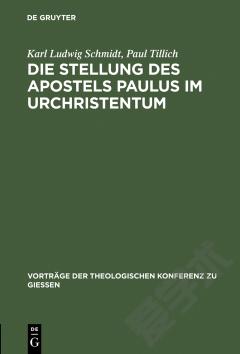Enigmes de la Deuxieme Epitre de Paul aux Corinthiens
Paul's Second Epistle to the Corinthians poses exegetical problems of well-known difficulty. The structure and unity of the whole Epistle are in doubt, as is the meaning of many particular passages and references - for example, the identity of Paul's opponents. Dr Collange bases his solutions to these problems on a detailed study of 2,14 - 7,4. He argues that the obscurities of the Epistle can be explained by the particular circumstances of its composition; Paul's use of more primitive Christian materials gives us a measure of his own originality and genius. This book should be of interest to all New Testament scholars.
{{comment.content}}








 京公网安备 11010802027623号
京公网安备 11010802027623号